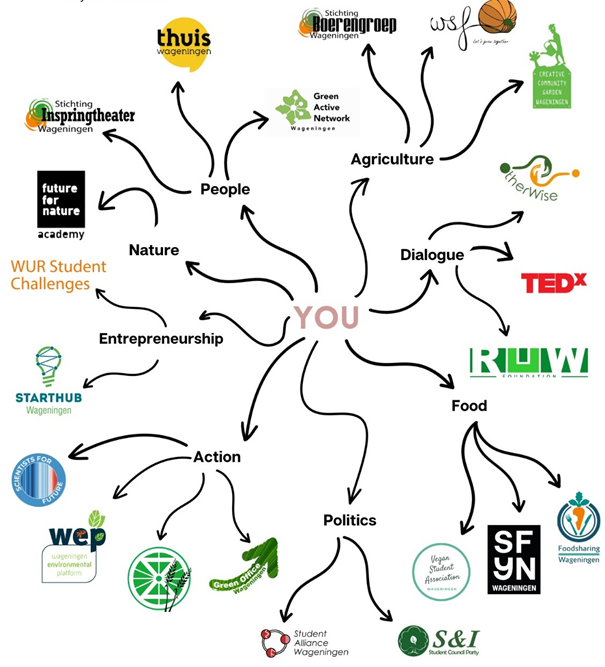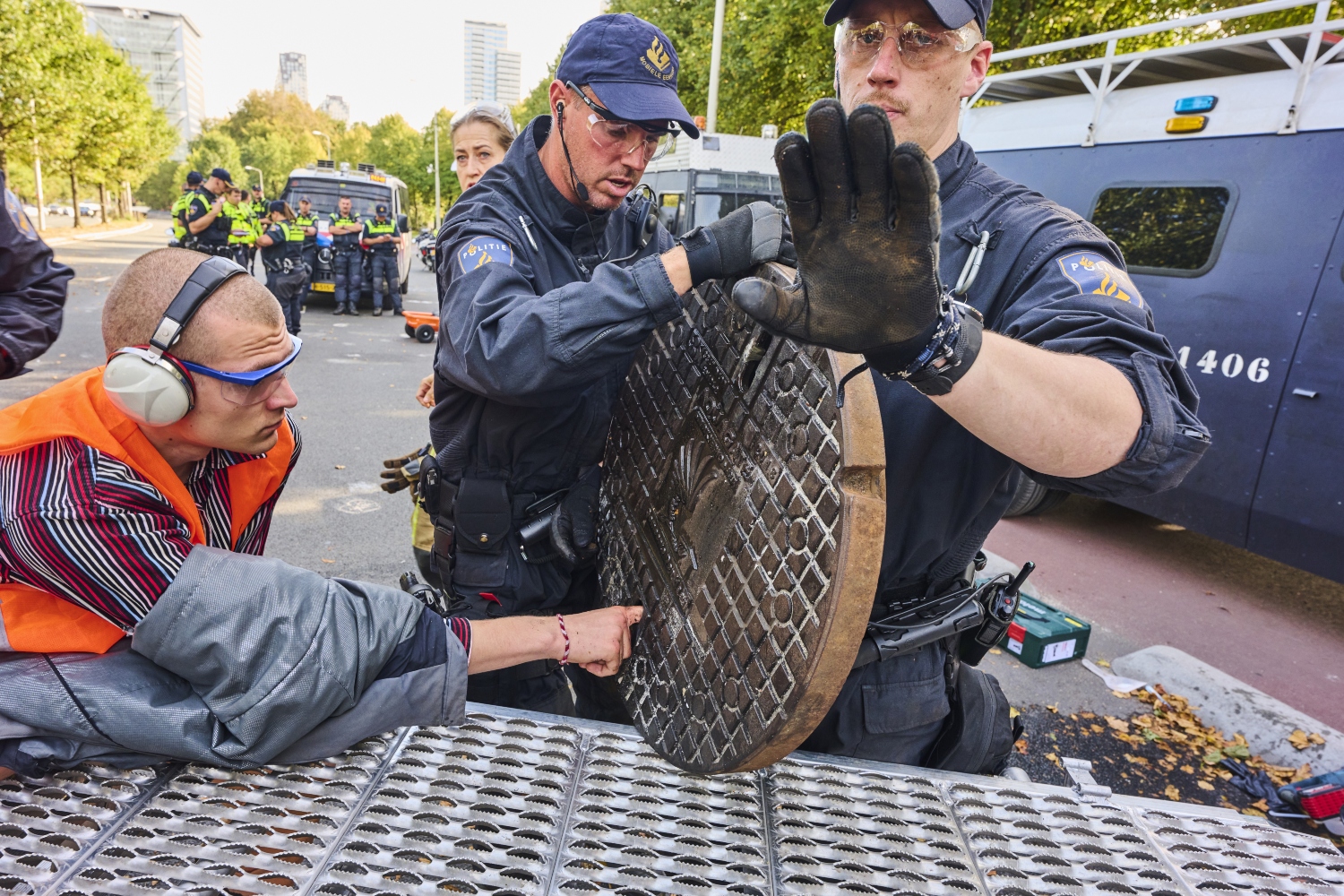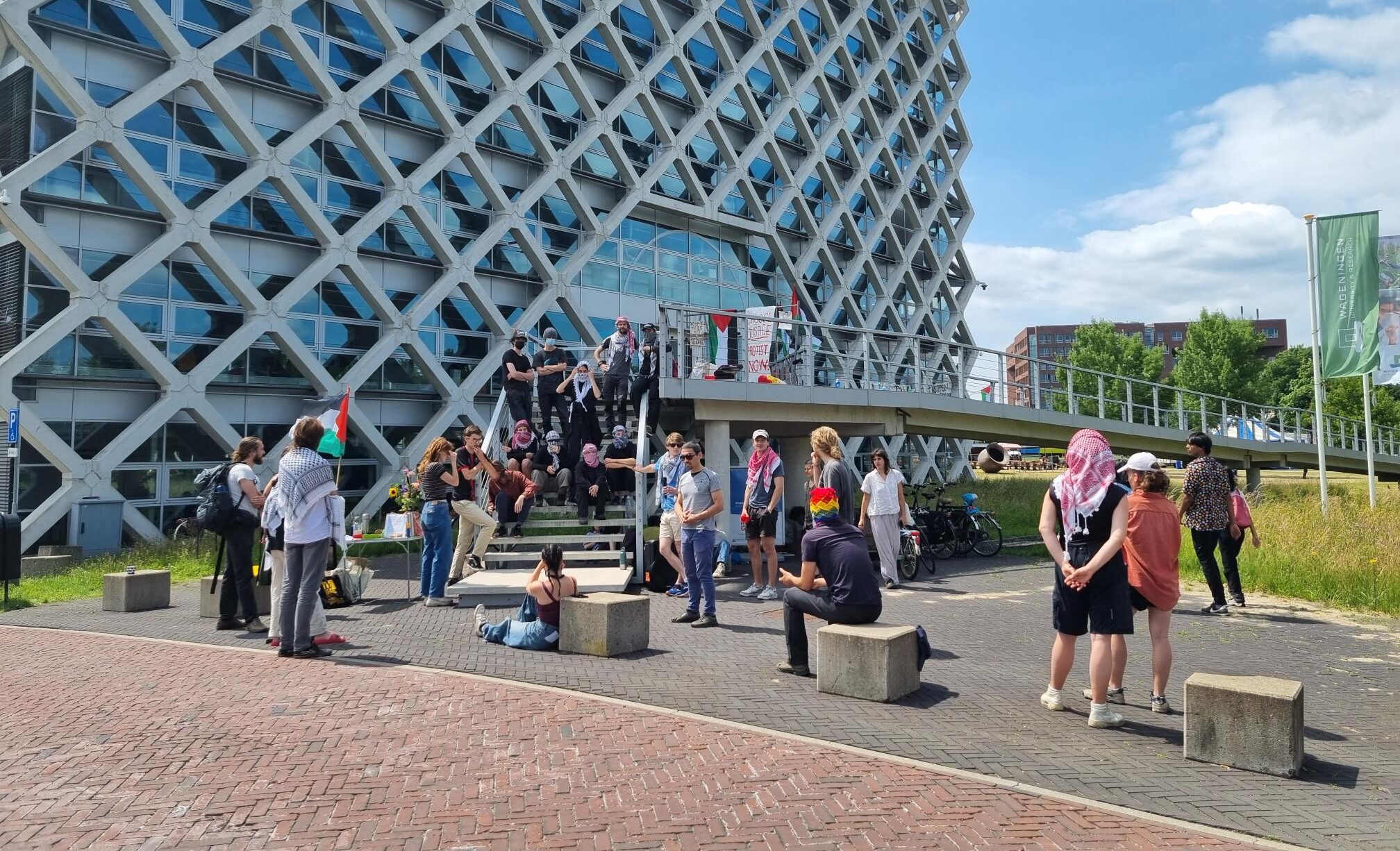Text Felix Landsman and Imme Voordendag
We are concerned about the climate crisis and want to work for change by becoming activists. But how do you make change happen? And what do we actually mean by change?
Bram Büscher, professor of the Sociology of Development and Change, sees two types of change: structural and short-term transformations. ‘You can busy yourself with practical forms of change such as renewable energy. But the point is the direction in which those practical steps are going. Short-term improvements should always be linked to a long-term vision.’
According to Büscher, our present system revolves around endless growth, and the quest for ever more efficiency is really a curse. Just look at the roads, where widening a motorway usually leads to heavier traffic, not less. We really need to learn to think outside the dominant logic of the system: ‘If you do something that is realistic in the current system, you are not working towards structural change. Think big, be unrealistic: that way the norms can slowly shift.’ A good example is the abolition of slavery: during the Dutch ‘Golden Age’, a slavery-free economy was considered absolutely impossible.
Think big, be unrealistic: that way norms can slowly shift
Bram Büscher, professor of the Sociology of Development and Change
So how do you then become an activist in the interests of those big, unrealistic ideas? According to associate professor of Cultural Geography and Scientists4Future member Martijn Duineveld, it’s really quite simple: ‘Everyone is an activist, you can’t avoid it. But most people are activists for the status quo. So if you want to change something, you don’t have to become an activist – you already are one. You just have to change the way you relate to the status quo.’
Too extreme
The idea that an activist is someone who uses extreme methods to make their point (like glueing themselves to a road) distances people from that role, says associate professor and anthropologist Elisabet Rasch. ‘Then people don’t want to be activists and see themselves as concerned citizens or residents instead.’ Lecturer, researcher and activist Michiel Köhne, who teaches the course Power, Resistance & Movements with Rasch, adds: ‘Discussing the climate with your parents is a form of activism too.’
In short: activism doesn’t have to determine your entire identity. And to make a difference you don’t have to smear an artwork with mashed potato, confirms Duineveld. ‘An activist movement needs protesters, but it also needs website managers and people to organize debates. Start experimenting a bit, don’t be scared of trying things out and pick a role that suits you. And don’t underestimate your power as a student: doors often open more easily for students.’
5 tips for novice activists
1. Focus on one issue
You may be concerned about all sorts of issues, but you can’t be active in three different campaign groups, says conflict anthropologist Rasch. ‘There’s a lot wrong with the world but if you try and fix everything yourself, you won’t have any time for the other things in your life.’ Picking a single issue also means you can bring enough attention to tackling that issue.
2. Listen to your heart
If you really care about something, you are extra motivated to put your all into it, says sociologist Büscher.
3. Find your community
Kristina Smieskova, student and involved in the Green Office: ‘It gives you hope to have people around you who share the same ideals. And a community like that connects you in valuable ways.’ Scientist and activist Köhne: ‘The present system is so dominant that people have trouble imagining how it could be any different. We’ve got to find out together what a new society can look like.’ In other words: you’re stronger together.
4. Which kind of activism is up your street?
Start by going into action in a way that is within your comfort zone, says PhD candidate and Scientists4Future member Anne-Juul Welsink: ‘If you take up running, you don’t start with a marathon either.’ For a lot of people, it’s a big step to start by glueing themselves to the Unilever building, or to start their own project. Good news: you don’t have to. ‘If those sorts of activities make you nervous, you can start by joining a support demonstration or visiting an organization that organizes such things.’
5. Take care of yourself and others
A major pitfall for an activist is the feeling that it’s all pointless. That makes it important to take good care of yourself and others. Rasch: ‘If you want to achieve something, you must keep things pleasant. So don’t cross your boundaries or anyone else’s, and make sure everyone feels at home in the project.’ That reduces the risk of an activism burnout. Büscher has a tip in this area too: do have a bit of fun while you’re working for change. Much nicer that way.
How did we experience this search for how to get started as an activist?
‘I have taken part in campaigns in the past that people see as illegal and unjustified. But only after this investigation into what activism is, do I feel like a real activist. It was an eyeopener for me that you are always an activist, even if you do nothing. Then you defend the status quo and therefore the crisis we’re in now. I hope people will start realizing that more.’ Felix Landsman
‘The theory and tips we got from people show that even small actions can contribute to change. Personally, I wouldn’t readily go and blockade a motorway, but I am now working in a network for local food in Wageningen. It feels good to know that you have an influence even as an individual. It’s not all a waste of effort.’ Imme Voordendag
What is there to do in Wageningen?
So there is plenty to do, and hopefully now you know better where and how to start. Still looking for your community? Here is an overview of the largest sustainable groups and organizations in Wageningen, created by the Green Active Network Wageningen. Choose something fun that suits you and remember: you too can make the world a little better!


 Start by campaigning in a way that stays within your comfort zone. You don’t have to go straight off and glue yourself to something, like this demonstrator at the A12 protests. ‘If you take up running, you don’t start with a marathon either.’ Photo ANP Nico Garstman
Start by campaigning in a way that stays within your comfort zone. You don’t have to go straight off and glue yourself to something, like this demonstrator at the A12 protests. ‘If you take up running, you don’t start with a marathon either.’ Photo ANP Nico Garstman 

